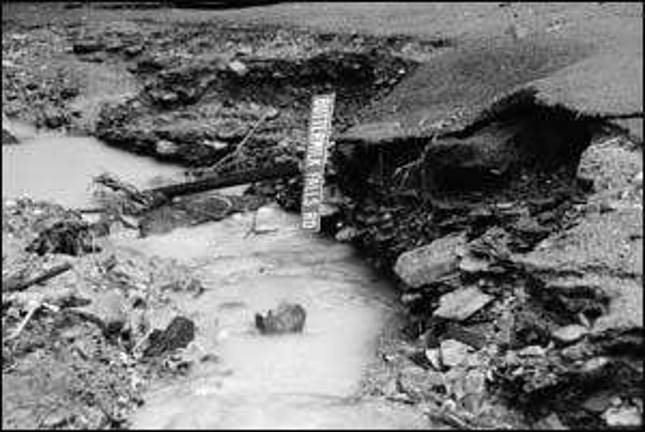Irene, Irene, the best reason for restoring wetlands that I've ever seen

In the recent press, now dominated by the devastation wreaked on Orange County and the region by Irene, there was scant coverage (except in The Chronicle and The Warwick Advertiser) of a fascinating conflict taking shape in Orange County's Black Dirt region. The federal government has been purchasing land in order to restore wetlands. As demonstrated at the wonderful Wallkill River National Wildlife Reserve, mostly south of our county, the restoration of this historic region's wetlands causes an amazing flourishing of nature, also covered in the recent press. However, the purchase program has taken some Black Dirt farming lands out of production and threatens to take more. As correctly noted by various farmers as well as County Planning and Water Authority Commissioner Dave Church, this is neither the time nor place to lose valuable food production capacity. Wetlands restoration, however, is a need of competing importance. The Black Dirt is wetland that is actively drained in order to farm. What an interesting dilemma! Enter Irene with record rainfall. No better litmus test than this for how poorly we have protected our wetlands, maintained our floodplains, protected our rivers and dealt with runoff and drainage. Well, we flunked all of these tests. Roads, houses, and businesses across the county were devastated. And in the black dirt, inundated crops tell the same story. If there is one lesson we should take from this experience, it is the need to follow the water and heed its message. County and regionwide, we need to address ways to protect ourselves in future storms by restoring the ecosystem health and services that we have had no right or reason to destroy but have done so nonetheless. We need to prevent further damage and restore capacities by banning and removing impervious surfaces; carefully directing and catching the remaining runoff; planting, protecting and restoring trees and landscapes to trap water; protecting and restoring wetlands everywhere and by daylighting (not burying in culverts and pipes); and restoring our streams and rivers as part of our environment. As just one case in point, I have proposed for the county jail site in the Village of Goshen daylighting the now piped Rio Grande stream and restoring wetlands on the site to absorb flood waters before they reach the village center. This step can be part of any plan to replace or renovate the county center, not surprisingly wiped out by Irene. And in the Black Dirt, in testimony and an article called "thinking like a river," I previously proposed approaching the Wallkill River with an understanding that flood control there is best achieved by strategic restoration and replacement of wetlands in various places, including the unused expansion landfill site. And in the Black Dirt proper, I proposed taking the least productive agricultural lands and restoring enough wetlands so that productive fields might escape inundation. It is this proposal that brings me back to the dilemma posed by the federal purchase of Black Dirt for wetlands restoration. I propose that Orange Environment, working with all stakeholders and agencies, develop a plan for conversion of strategic Black Dirt areas to wetlands using federal funds. As part of the plan, an agreement would be reached with the government to support continued farming on the bulk of the Black Dirt with the hope that flooding there would be controlled in the process. The goal of restoring black dirt ecosystems would thus be achieved in a way that protected and ensured the continuation of farming. Competing goals would become cooperating ones. Similar logic can be exported to other parts of the region, ensuring that the disaster of the past days will be much less likely to be repeated while simultaneously restoring health to the local environment. Michael R. Edelstein is co-president of Orange Environment, a non-profit organization serving the Orange County region since 1982. He is also professor of environmental psychology at Ramapo College of New Jersey and a faculty member in the Environmental Studies and Masters of Sustainability Studies programs there.